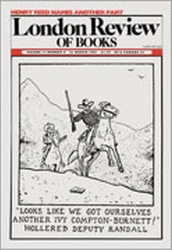On Tuesday evening, September 25, 1973, we find Reed at a reading hosted at The Pindar of Wakefield pub, bringing with him an "unpublished war poem" to share. This announcement appeared in The Observer on September 23:

The Pindar of Wakefield could boast of being established in 1517, although the current building was constructed after a fire in 1878. A pinder (or pinner) was a person employed to impound stray cattle and to look after the pound. The pub takes its name from a traditional ballad about a mythical Wakefield pound-keep who resisted Robin Hood. As an underground music venue, its stage has been graced by the likes of Bob Dylan in 1962, The Pogues in 1982, and Oasis in 1994. In 1986 it became The Water Rats Theatre Bar, and it's now the Monto Water Rats:
The International Who's Who in Poetry (1972), has this entry for The Cool Web:
Organizer, Hugh Dickson, The Pindar of Wakefield, 328 Grays Inn Road, Kings Cross, London. The Cool Web is a platform for good verse from all sources to be presented in a relaxed atmosphere. A small group of experienced readers, all professional actors, select a programme and are joined by a well-known poet. The guest poet is invited to use one part of the evening in any way he likes: to read his own poems or other people's, to make critical, political or polemical points, to involve the actors, or to integrate with the rest of the programme.
Successful programmes have already taken place, featuring Alan Brownjohn, George MacBeth, Peter Porter and Anthony Thwaite. Some time is also set aside for readings from the audience.
The group meets at 8 pm every Tuesday at the above address and is organized by Hugh Dickson, 4a Colinette Rd., SW15, and David Brierly, 1 Zenobia Mansions, W14.
Successful programmes have already taken place, featuring Alan Brownjohn, George MacBeth, Peter Porter and Anthony Thwaite. Some time is also set aside for readings from the audience.
The group meets at 8 pm every Tuesday at the above address and is organized by Hugh Dickson, 4a Colinette Rd., SW15, and David Brierly, 1 Zenobia Mansions, W14.
"The Cool Web" comes from a line in the Robert Graves poem with that title: "There's a cool web of language winds us in...".
Given Reed's affinity for the stage (and for actors), it sounds like a staggering (and interactive) evening. The "unpublished war poem" can be none other than the last addition to his Lessons of the War sequence, "Psychological Warfare." The notes to his Collected Poems (1991), edited by Jon Stallworthy, indicate that Reed probably worked the poem for several decades, adding and updating several drafts:
(?1950—1970). Typed draft with autograph emendations, 7 ff.; autograph note at head: "USE THIS COPY but v. pp. 6 & 7 of the other", is in shaky late hand. Earlier (?) typed drafts show minor variants. A number '5.' preceding the title would seem to indicate that this poem was once intended to form part of the sequence Lessons of the War… of 1970—indeed, the author in conversation in the 1970s mentioned that such an afterpiece had been composed.
[p. 163]
It would seem Reed intended, or at least, hoped, ultimately, for "Psychological Warfare" to be inserted before "Returning of Issue," the closing poem in the series. "Returning of Issue" was published in 1970 both in the Listener and the collected Lessons of the War (New York: Chilmark Press), although a version was included in a reading of "The Complete Lessons of the War" on BBC radio in 1966. In fact, in this archive of radio scripts produced by Douglas Cleverdon, there are two unscheduled "Complete Lessons" listed (is a recording implied?), one of which includes "Psychological Warfare" as early as 1965:
Box 4 F223 unscheduled [1965] Reed, Henry. The Complete Lessons of the War. I. Naming of Parts, II. Judging Distances, III. Movement of Bodies, IV. Unarmed Combat, V. Psychological Warfare, VI. Return of Issue. Read by Reed and Frank Duncan. TLO 531/697The poem remained unpublished in Reed's lifetime, and did not appear in print until 1991, when the London Review of Books published it to herald the arrival of the Collected Poems. An acquaintance of Reed's from Birmingham (and later, Bletchley Park), however, wrote to the LRB when the poem appeared to suggest that work on "Psychological Warfare" had actually been begun before the end of the Second World War (previously). In any case, it survives as a masterpiece of Reed's inability to self-censor or cut from his work. The Lessons of the War progress from "Naming of Parts," at 30 lines long, to this 21-stanza monster of 253 lines. I can't imagine reading the entire poem to a live (or radio) audience, despite how funny it may be.









